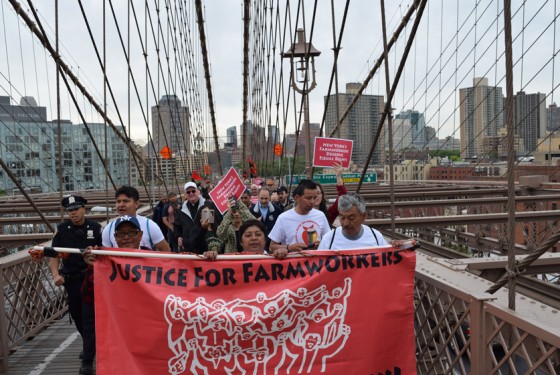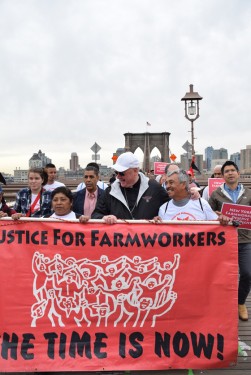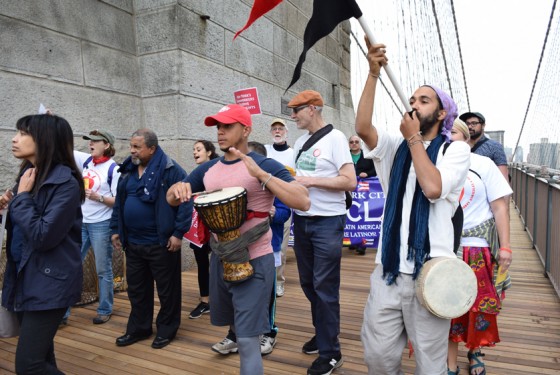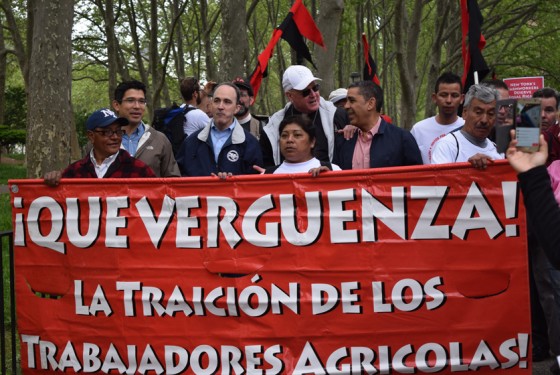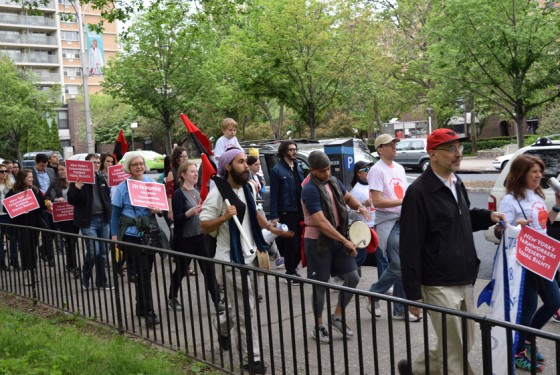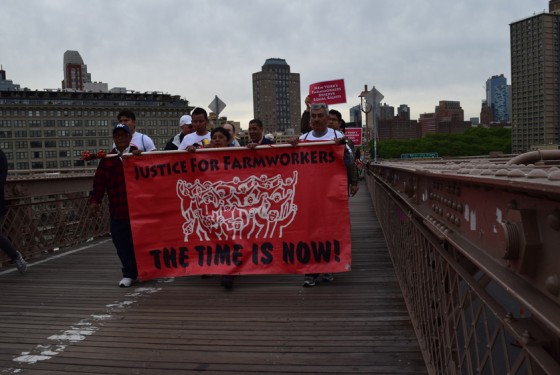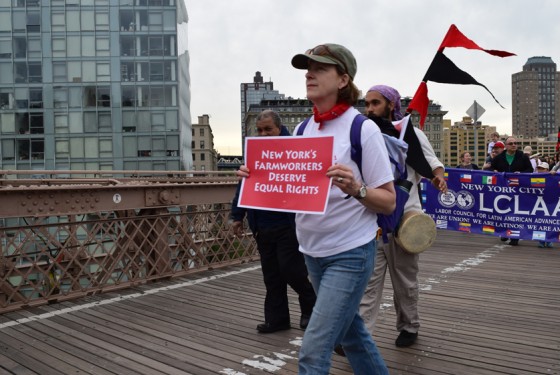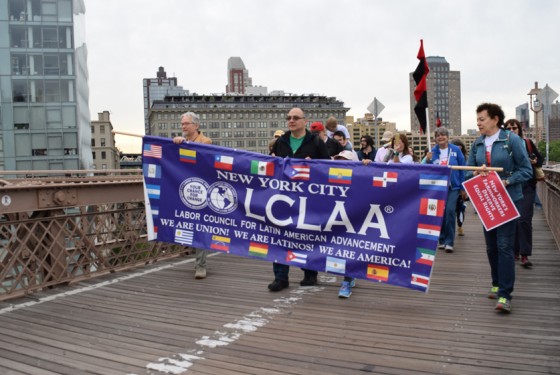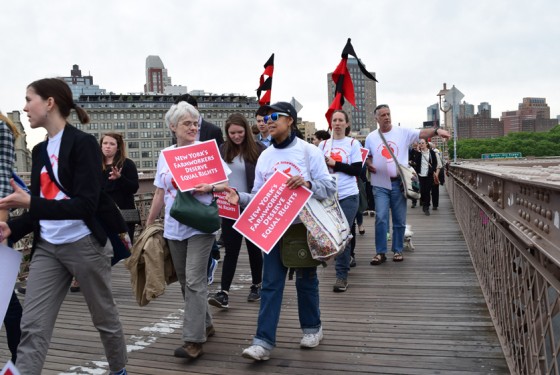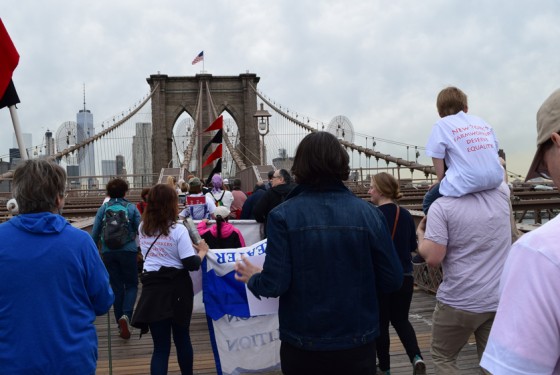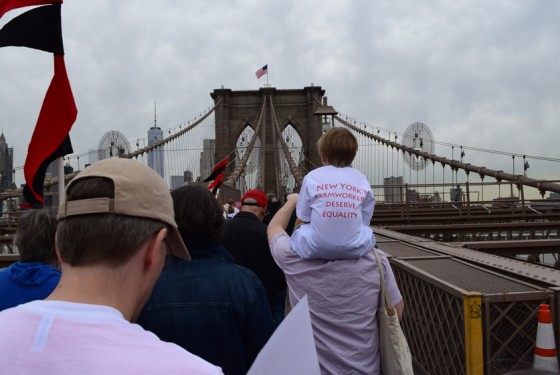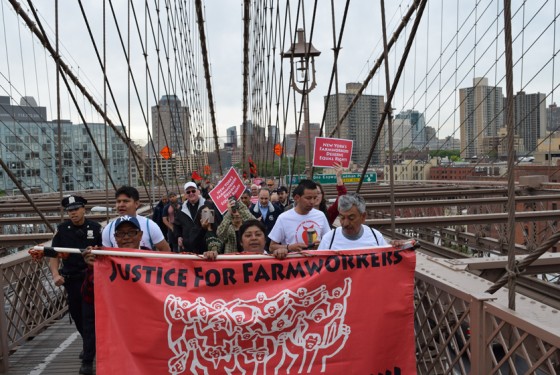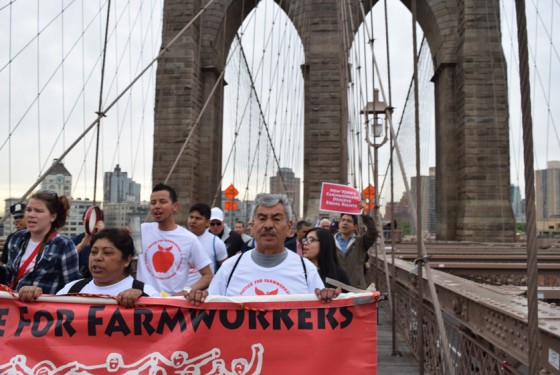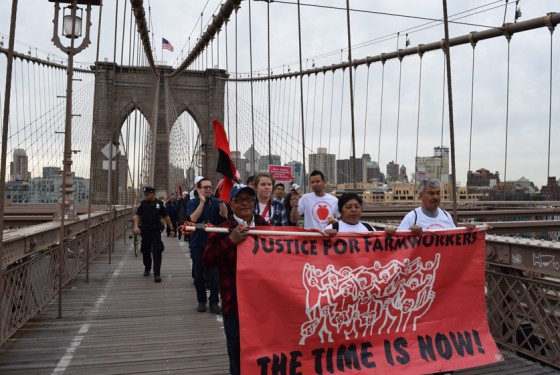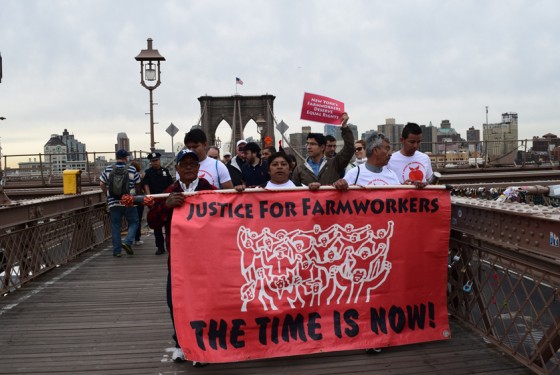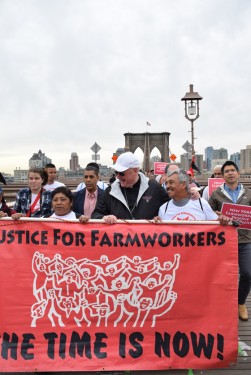The 18-day March for Farmworker Justice made its way through the diocese last week on its way to Albany from Smithtown, L.I.
Holding the leading banner were farm workers fighting for the labor rights that most New Yorkers already enjoy, including one day of rest a week, sick leave and worker’s compensation.
Pablo Cruz, a farmworker from Montgomery, NY, said the march required a personal sacrifice from him. However, he wanted to do it to help secure his fellow farmworkers equal dignity under the law.
“I know I don’t have a job anymore because I abandoned my work” to be at the march, Cruz said. “I will look for work when I return.”
Among the worst aspects of being a farmworker, Cruz said, are the detrimental work conditions. He and his fellow workers must work through rain and the pesticides that farm owners spray on their crops. This, he said, causes the workers to get sick. Because they have no sick leave or health care, this also causes the workers to lose wages and money for medical fees.
Cruz said New York City is a vital part of the march, because it is where many of the crops are delivered and consumed. He said he hopes local residents and politicians, including Mayor Bill de Blasio will become aware of the plight of farmworkers.
“God willing we will be victorious,” he said.
A believing Catholic, Cruz said he was heartened to see Cardinal Timothy Dolan join the march because the cardinal’s presence confirms the Church’s continuous support of farmworkers.
Cardinal Dolan met the marchers in Brooklyn May 21 and walked the Brooklyn Bridge with them, welcoming them to his archdiocese.
“This isn’t a choice for me, it’s a duty,” the cardinal said. “We are together in this.”
The cardinal said he had to be there as a Catholic, as an American and as a New Yorker. He said he was following in St. Pope John Paul II’s footsteps in fighting for solidarity for all people.
Cardinal Dolan marched with a contingent of farm workers, concerned citizens and members of the statewide Rural and Migrant Ministry, which organized the march.
Connie Valk, a board member of the organization and a Unitarian Universalist, said she has been involved with the cause for years thanks to the efforts of her denomination. She said a real turning point for her was when she went to Arizona and saw farmworkers waiting to be deported in tents in the desert.
“I knew I had to do something,” she said. “It is important to me as a person of faith that this injustice end.”
Rev. Richard Witt, executive director of Rural and Migrant Ministry and an Episcopalian priest, said he hopes the march spreads awareness of the Farmworkers Fair Labor Practices Act.
The act would guarantee equal protections for farm workers who have been exempt from worker protections due to old Jim Crow laws that were aimed to suppress the children of slaves. Rural and Migrant Ministry has also brought a lawsuit against New York for failing to protect farm workers in a way that is contrary to the state constitution. Gov. Andrew Cuomo publicly stated that he will not fight the suit.
“But I’m sure someone else will,” Rev. Witt said.
He has been working to change farmworker law for 20 years and says he looks to Moses for inspiration, who spent twice as long in the desert. He said he does have reason to be hopeful, as more and more state senators sign on to the Farmworkers Fair Labor Practices Act.
Rev. Witt said most of the people at the march were not farm workers because most farm workers cannot afford to march and fight. Therefore, he feels it is up to the rest of the community, the consumers of their products, that must stand up for them.
The marchers made their way into the diocese from Garden City, Suffolk Country, and marched through Floral Park, Jamaica, Park Slope and onto the Brooklyn Bridge, which led them to Manhattan.
To keep track of the Marchers as they make their way to their Albany destination on June 1, visit http://ruralmigrantministry.org/farmworker-march.
To sign the petition for the Farm Worker Fair Labors Practices Act, visit bit.ly/petition4762.

